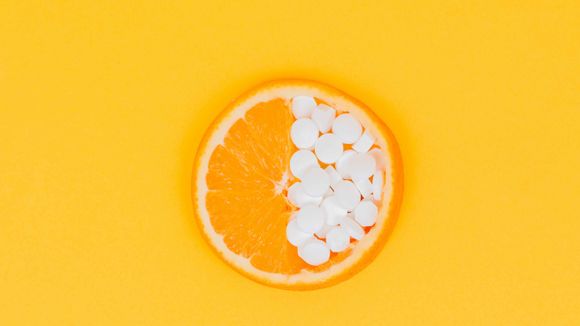Folate and folic acid - let's clarify the terms
Folic acid is a man-made form of folate (vitamin B9). [ref. 1] Folate is found naturally in some fruits, vegetables and nuts. Folic acid is contained in vitamins and fortified foods.
Folic acid and folate help the body produce healthy new red blood cells. As you probably know, red blood cells carry oxygen to all parts of the body. If your body does not produce enough red blood cells, you can develop anemia.
Anemia occurs when the blood can not carry enough oxygen into the body. Because of this, the skin becomes pale, you become tired and tired. In addition, if you do not receive enough folic acid, you may develop folate-deficiency anemia.
Why do women need folic acid?
Every person regardless of gender needs folic acid to be healthy. But it is especially important for women for the following reasons:
- Before and during pregnancy: Folic acid protects unborn children from serious birth defects called neural tube defects. These birth defects occur in the first few weeks of pregnancy, often before a woman realizes she is pregnant. Folic acid can also help prevent other types of birth defects and early pregnancy loss (miscarriage). [Ref. 2]
To keep the blood healthy, helping red blood cells to form and grow. Insufficient intake of folic acid can lead to folate-deficiency anemia. Folic deficiency anemia is more common in women of childbearing age than in men.
How do I get folic acid?
People can get folic acid in two ways:
- Through dietary sources: Folate is found naturally in some foods, including spinach, nuts and beans. Folic acid is found in fortified foods such as bread, pasta and cereals.
- In the form of dietary supplements.
How much folic acid do women need?
All women need 400 micrograms of folic acid every day. Women who may become pregnant should receive another 400 to 800 micrograms of folic acid from vitamin supplements or from food with folic acid.
Recommendations for some women may differ. For example, if the woman had a baby with a neural tube defect (such as spina bifida) and wants you to become pregnant again; if there is a family member with spina bifida and may become pregnant, the amounts may jump to 4000 micrograms.
In women taking medicines to treat epilepsy, type 2 diabetes, rheumatoid arthritis or lupus, folic acid supplements may interact with these medicines and should only be prescribed.
Which foods contain folate?
Folate is found naturally in some foods that you can include in your diet to provide optimal amounts. [ref. 3] Foods with a naturally high folate content include:
- Spinach and other dark green, leafy vegetables
- Citrus juices
- Nuts
- Beans
- Poultry meat (chicken, turkey, etc.)
- Wholegrain cereals

Which foods contain folic acid?
Folic acid is added to foods that are refined or processed so that it can be found in:
- Cereals (some types may have 100% of the recommended daily value - or 400 micrograms of folic acid per serving)
- Bread and pasta
- Flours
- Corn semolina
- White rice [ref. 4]
What should I watch out for when buying vitamins with folic acid?
This is an important question that we need to ask ourselves when buying any food supplements, not just those with folate. Specifically for them, look for the abbreviation 'USP' or 'NSF' on the label when choosing vitamins. These abbreviations mean that the pills are made correctly and contain the amounts of vitamins indicated on the label.
Also, make sure that the product has not expired. If the bottle does not have a shelf life indicated, do not buy it.









